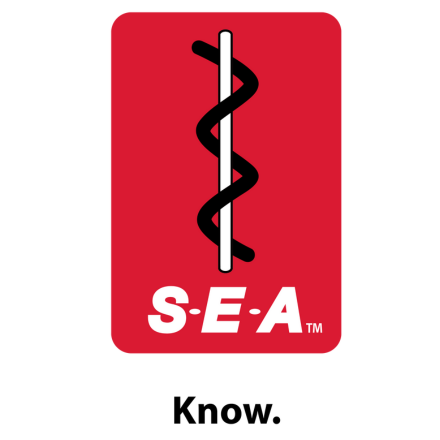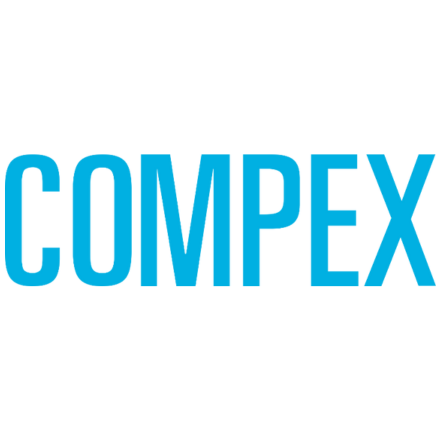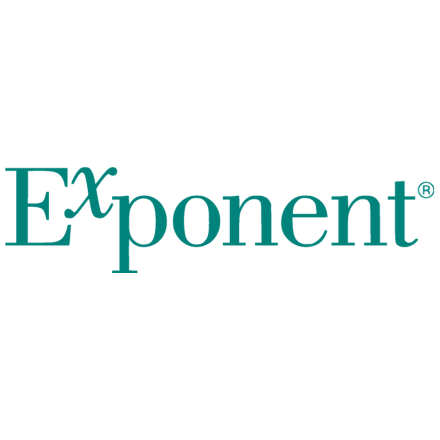District of Columbia Overview Court SystemAt Themis Advocates Group, we are committed to providing invaluable resources to members and clients alike.
Firm: DeCaro, Doran, Siciliano, Gallagher and DeBlasis, LLP City and State of Firm: Bowie, Maryland Overview of the State of District of Columbia Court SystemA. Trial CourtsDistrict of Columbia Superior CourtThe Superior Court handles all local trial matters, including civil, criminal, family court, probate, tax, landlord-tenant, small claims, and traffic. D.C. Code § 11- 921(a). The Civil Division has jurisdiction over any civil action or action in equity brought in the District of Columbia, except when a federal court has exclusive jurisdiction. The District of Columbia maintains its own body of case law and statutes. However, the District often turns to Maryland law for guidance based on the close proximity and relationship of the two jurisdictions. The District of Columbia is a region of great diversity, ranging from high crime areas with lower-income population to more affluent areas. As a result of the change to the jury system in the District of Columbia, juries have become slightly more moderate in their verdicts. The Civil Division has four branches: the Civil Actions Branch, the Small Claims and Conciliation Branch, the Landlord Tenant Branch, and the Quality Review Branch.
B. Appellate CourtsDistrict of Columbia Court of AppealsAn Appeal as of Right may be taken only by filing a notice of appeal with the Clerk of the Superior Court within thirty days after entry of the judgment or order from which the appeal is taken unless a different time is specified by the provisions of the District of Columbia Code. D.C. Ct. App. R. 3 & 4. The notice of appeal must specify the party taking the appeal and designate the judgment, order, or part thereof being appealed. D.C. Ct. App. R. 3(c)(1). Within ten days after filing the notice of appeal, the appellant must order from the reporter a transcript of such parts of the proceedings not already on file as the appellant considers necessary, and identify for the Court Reporter Division any transcript already prepared that is to be included in the record on appeal; or the appellant must file a certificate in the District of Columbia Court of Appeals stating that no transcript will be ordered. D.C. Ct. App. R. 10(b). The Record for the Appeal consists of the following:
Court. D.C. Ct. App. R. 10(a). Post-Trial Bonds In the event of an adverse verdict against a defendant, steps need to be taken to prevent judgment by way of levy upon the property of the defendant, even if the defendant has insurance to cover the judgment. A Supersedeas Bond operates to stay the enforcement of a judgment pending appeal, and thus tolls the statutory twelve-year limit on enforcing a judgment. Dickey v. Fair, 768 A.2d 540 (D.C. 2001). Further, a Government appeal automatically stays enforcement of the underlying court order. Hoban v. WMATA, 841 F.2d 1157, 1158-59 (D.D.C. 1988). A stay in the period of enforcement for a judgment can be granted by either the trial court or Court of Appeals for any lawful reason, but not without first posting a supersedeas bond or some other appropriate security. Dickey, supra. Pre-Judgment/Post-Judgment Interest Interest is allowable on money judgments in civil cases. 28 U.S.C. § 1961 sets forth the manner and the rate which interest may be specified. The rate varies according to the formula set in that section. The interest shall be calculated from the date of the entry of the judgment, at a rate equal to the weekly average one year constant maturity Treasury yield, for the calendar week preceding the date of the judgment. ProceduralA. VenueAs the District of Columbia only has one trial court, the concept of venue as generally understood is inapplicable to this jurisdiction. B. Statute of LimitationsPursuant to D.C. Code § 12-301, the following statutes of limitation apply in the District of Columbia:
The District of Columbia also applies the discovery rule, which provides that a cause of action accrues when a plaintiff discovered, or with reasonable care should have discovered, all of the essential elements of their possible cause of action (i.e. duty, breach, causation and damages). Knight v. Furlow, 553 A.2d 1232, 1236 (D.C. 1989). C. Time for Filing An Answer Pursuant to Super. Ct. Civ. R. 12, an Answer must be filed within 21 days after the service of the summons and complaint, unless otherwise proscribed by statute. Affirmative defenses must be raised in the Answer or these defenses are deemed waived, with the exception of the following affirmative defenses, which may still be raised by motion: 1. Lack of jurisdiction over subject matter 2. Lack of jurisdiction over the person 3. Insufficiency of process 4. Insufficiency of service of process 5. Failure to state a claim upon which relief can be granted 6. Failure to join a party needed for a just adjudication D. Dismissal Re-Filing of Suit Pursuant to Sup. Ct. Civ. R. 41 (2012), an action may be dismissed by the plaintiff without an order of the Court either by filing a notice of dismissal at any time before the adverse party files an Answer or Motion for Summary Judgment or by filing a stipulation of dismissal signed by all parties who have appeared in the action. The dismissal of the action is without prejudice unless otherwise stated in the notice of dismissal or stipulation of dismissal. However, if the plaintiff has previously brought the same claim in another federal or state court and that action was dismissed, then a subsequent notice of dismissal in D.C. Superior Court acts as an adjudication upon the merits. Additionally, the D.C. Superior Court may order the plaintiff to pay the costs of the prior action. LiabilityA. NegligenceIn the District of Columbia, to prevail on a claim for negligence, the plaintiff must prove "the applicable standard of care, a deviation from that standard by the defendant, and a causal relationship between that deviation and the plaintiff's injury." Bruno v. W. Union Fin. Servs., 973 A.2d 713 (D.C. App 2009). B. Negligence DefensesThe District of Columbia recognizes the affirmative defenses of contributory negligence and assumption of the risk: 1. Contributory Negligence The District of Columbia is among the handful of jurisdictions that recognizes the doctrine of contributory negligence, which is an affirmative defense that states a plaintiff cannot recover if her own negligence is a proximate cause of the injury. Contributory negligence is defined as unreasonable conduct that falls below the standard to which a plaintiff should conform her for own protection and which ultimately contributes to the injuries sustained. Scoggins v. Jude, 419 A.2d 999, 1004 (D.C. 1980). The Doctrine of Last Clear Chance presents a narrow exception to the application of contributory negligence. If contributory negligence is present, but the defendant had a superior opportunity (i.e., a last clear chance) to avoid the accident, then the plaintiff may recover even if the plaintiff was, in fact, contributorily negligent. 2. Assumption of the Risk Assumption of the risk applies where a plaintiff “subjectively know[s] of the existence of the risk and appreciate[s] its unreasonable character.” Sinai v. Polinger Co., 498 A.2d 520, 524 (D.C. 1985). Assumption of the risk acts to relieve the defendant of any duty toward plaintiff. To prove assumption of the risk, the defendant must show by a preponderance of the evidence that the plaintiff (1) actually knew and understood the full scope and magnitude of the danger arising from the defendant’s conduct and (2) voluntarily exposed herself to that danger. However, a plaintiff cannot be found to have assumed the risk where the defendant’s conduct left her no reasonable alternative. 3. Statute of Limitations The statute of limitations defense is not deemed waived even if the defense was not raised in the Answer provided the parties are not prejudiced by a delay in raising the defense. C. Gross Negligence, Recklessness, Willful and Wanton ConductThe legal concepts of gross negligence, recklessness, and willful and wanton conduct are generally inapplicable to the typical tort case in the District of Columbia. These concepts may come into play in the award of punitive damages against a tortfeasor, discussed infra. D. Negligent Hiring and RetentionThe District of Columbia recognizes a cause of action for negligent hiring and retention, but only where the employer was not already stipulated to an agency relationship, in which case the plaintiff can proceed on a respondeat superior theory. 1. Negligent Hiring and Retention The District of Columbia recognizes a cause of action for negligent hiring and retention. In order for a plaintiff to establish a claim for negligent hiring and retention, she must show that the “employer was negligent in selecting a servant unfit to perform the services for which he was employed” and the “incompetency or unfitness of the servant” was a proximate cause of the injury. Stumpner v. Harrison, 136 A.2d 870, 872 (D.C. Mun. App. 1957). The District of Columbia also recognizes a cause of action for the negligent retention of an independent contractor. 2. Admission of Agency as Defense to Negligent Hiring and Retention The District of Columbia takes the majority view that if an employer stipulates to the existence of an agency relationship between itself and an employee, then it is improper for plaintiff to proceed on a theory of negligent hiring and retention. This view reflects the notion that a claim for negligent hiring and retention should not impose additional liability upon the employer where same has admitted the employee was acting in the scope of the employment, in which case the plaintiff can proceed on a respondeat superior theory. See Hackett v. Washington Metropolitan Area Transit Authority, 736 F. Supp. 8 (D.D.C. 1990). E. Negligent EntrustmentThe District of Columbia recognizes a separate and distinct cause of action for negligent entrustment. The elements of negligent entrustment are “(1) the making available to another a chattel which the supplier (2) knows or should have known the user is likely to use in a manner involving risk of physical harm to others (3) whom the supplier should expect to be endangered by its use.” Phelan v. City of Mount Rainier, 805 A.2d 930, 941 (D.C. 2002). “Generally, negligent entrustment of a vehicle is imposed only where the owner entrusts the vehicle to one whose appearance or conduct is such as to indicate his incompetency or inability to operate the vehicle with care.” Drummond v. Walker, 643 F. Supp. 190, 191 (D.D.C. 1986). The owner of a vehicle is under no duty to make an inquiry as to another person’s competency or ability to operate that vehicle unless the owner possesses some knowledge of facts or circumstances that put or should put the owner on notice. Id. F. Dram ShopThe District of Columbia has enacted statutory regulations that prohibit a holder of a liquor license from either serving alcohol to an underage and/or visibly intoxicated patron or permitting the consumption of alcohol by such persons. See D.C. Code § 25-101. There is fairly extensive District of Columbia case law extending liability to liquor licensees for injuries sustained by third parties as a result of the tortious conduct of intoxicated patrons. See e.g. Zhou v. Jennifer Mall Restaurant, Inc., 534 A.2d 1268 (D.C. 1987) (finding a tavern liable for injuries sustained by plaintiffs in an automobile accident caused by an intoxicated patron). In Zhou, the Court of Appeals held that serving a person already intoxicated or apparently intoxicated renders the liquor licensee negligent per se, and that where injuries are proximately caused to a member of the public by that violation the licensee may be liable in damages. The Court of Appeals has also held liquor licensees negligent per se for serving underage patrons. In such instances, the defendant may not raise the affirmative defenses of contributory negligence or assumption of the risk. See Jarrett v. Woodward Bros.. 751 A.2d 972 (2000). Dram shop liability may be found whether the alleged injury was incurred on the licensee’s premises or elsewhere. G. Joint and Several Liability In the District of Columbia, “the law pertaining to the right of contribution among joint tortfeasors has been established by case precedent rather than by statute.” District of Columbia v. Washington Hosp. Ctr., 722 A.2d 332, 336 (D.C. 1998) (citing Lamphier v. Washington Hosp. Ctr., 524 A.2d 729, 733 (D.C. 1987)). Under joint and several liability, multiple defendants who are found liable for a single injury are deemed to be joint tortfeasors, and any compensatory damages from that single injury must be awarded jointly and severally against them.” Faison v. National Mortgage Corp., 839 F.2d 680, 686 (D.D.C. 1987). If two or more tortfeasors produce a single injury, the plaintiff may sue each one for the full amount of the damage and hold the defendants severally liable; but the plaintiff can obtain only a single recovery, and each defendant will be entitled to a credit for any sum that the plaintiff has collected from the other defendant. Faison, 839 F.2d at 686-87 (citing Leiken v. Wilson, 445 A.2d 993, 999 (D.C.1982)). Since the District of Columbia does not recognize degrees of negligence, contribution is apportioned equally among all tortfeasors. Thus, the contribution among joint tortfeasors is pro-rata in the District of Columbia. As such, the law of the District of Columbia permits a party to enforce contribution against one who shares common liability to the original plaintiff. Emmert v. U.S., 300 F. Supp. 45 (D.D.C. 1969). H. Wrongful Death and/or Survival ActionsThe District of Columbia has observed that two separate, but closely related, causes of action may arise from negligent conduct resulting in death: [O]ne under the Survival Act, which allows recovery of damages . . . arising from personal injury to the decedent, and another under the Wrongful Death Act which allows recovery for pecuniary loss to the decedent’s next of kin (e. g., loss of support) occasioned by the death. The Survival Act permits a claim which accrued to a decedent before his death to be enforced after his death by his ‘legal representative.’ On the other hand, the Wrongful Death Act creates a new cause of action which arises on the death of the decedent and is enforced by his ‘personal representative.’ Strother v. District of Columbia, 372 A.2d 1291, 1295 (D.C. 1977). 1. Wrongful Death A wrongful death action may be brought by the personal representative of the decedent within one year of the decedent’s death. The personal representative is representing the surviving spouse and the next of kin of the decedent. In such a case, the financial loss each beneficiary has suffered is to be considered. D.C. Code § 16-2701 (2012). 2. Survival Action In the District of Columbia, a personal injury action survives the death of a tort victim. D.C. Code § 12-101 (2012). Thus, if the tort victim dies as a result of the tort, a survival action may be brought by the legal representative of the estate of the decedent for recovery of certain damages. I. Vicarious LiabilityVicarious Liability: Under a respondeat superior theory of vicarious liability, an employer is responsible for the wrongful acts or omissions of an employee if they were committed in furtherance of the business of the employer. Convit v. Wilson, 980 A.2d 1104 (D.C. 2009). Independent Contractor: A person is an independent contractor if he uses his own methods and the employer does not retain control over the performance of his work. An employer is generally not responsible for an independent contractor’s negligent acts or omissions. Exceptions to the rule arise when an employer negligently directs an independent contractor to act in a way that results in harm to another person, when an employer negligently hires an independent contractor, and/or when an independent contractor negligently performs work that is inherently dangerous. See Levy v. Currier, 587 A.2d 205 (D.C. 1991); District of Columbia v. Howell, 607 A.2d 501 (D.C. 1992). J. Exclusivity of Workers’ CompensationWorker’s compensation is generally an exclusive remedy in the District of Columbia. Thus, if a worker has recovered worker’s compensation benefits from her employer, then she is barred from bringing another cause of action against the employer. However, if the employer fails to secure payment of the compensation, then the employee may elect to bring a civil action. In such an action, the employer may not plead as a defense that the employee assumed the risk, that employee was contributory negligent, or that the injury was caused by the negligence of another employee. See D.C. Code § 32-1504 (2012). 1. Requisite Showing To recover worker’s compensation benefits, the employee must show that the injury was not only “accidental,” but that the injury “arose out of” and occurred “in the course of employment.” The injury is said to have arisen out of the employment provided there is some connection between the injury and the conditions under which the work was performed. The District of Columbia construes “in the course of employment” broadly; an injury is said to have occurred in the course of employment provided it occurred in the regular manner of the employee’s work for the employer. 2. Notice Requirement The District of Columbia requires an employee to give written notice to the employer and the Mayor for any injury for which compensation is payable within 30 days of the occurrence of the injury. Failure to give such notice will not bar the the claim provided that: (a) the employer had knowledge of the injury and the Mayor determines that the employer is not prejudiced by the failure to give notice; or (b) the Mayor excuses the failure to give notice on the ground that notice could not have been given; or (c) the employer did raise an objection related to the failure to give notice at the first hearing of the claim. D.C. Code § 32-1513 (2012). DamagesA. Statutory Caps on DamagesThe District of Columbia does not have a statutory cap on non-economic damages. B. Compensatory Damages for Bodily InjuryThe jury is instructed to award the plaintiff a sum of money which will fairly and reasonably compensate plaintiff for all the damage which he or she experienced which was proximately caused by the defendant. See DC Standard Civil Jury Instruction No. 12-1 (2012). Typical recoverable damages are enumerated in DC Civil Jury Instruction No. 13-1, which states: If you find in favor of [the plaintiff], then you should consider whether [he] [she] is entitled to any damages. You may award damages for any of the following items that you find the defendant's [negligence] proximately caused: 1. the extent and duration of any physical injuries sustained by the plaintiff; 2. the effects that any physical injuries have on the overall physical and emotional well-being of the plaintiff; 3. any physical pain and emotional distress that the plaintiff has suffered in the past; 4. any physical pain and emotional distress that the plaintiff may suffer in the future; 5. any disfigurement or deformity suffered by the plaintiff, as well as any humiliation or embarrassment associated with the disfigurement or deformity; 6. any inconvenience the plaintiff has experienced; 7. any inconvenience the plaintiff may experience in the future; 8. any medical expenses incurred by the plaintiff; 9. any medical expenses that the plaintiff may incur in the future; 10. any loss of earnings incurred by the plaintiff; 11. any loss of earnings or earning capacity that the plaintiff may incur in the future; and 12. any damage or loss to plaintiff's personal property. D.C. Civil Jury Instruction No. 13-6 also allows recovery for loss of consortium, which includes “not only the injured spouse's material services, but also includes love, affection, companionship, sexual relations and other matters generally associated with a marital relationship.” C. Collateral Source1. Personal Injury Protection The collateral source rule prohibits the admission of evidence that a plaintiff's damages were or will be compensated from some source other than the damages awarded against the defendant. The collateral source rule applies when the source of the benefit is not connected in any way with the defendant or the plaintiff has contracted for the benefits. See District of Columbia v. Jackson, 451 A.2d 867, 871 (D.C. App. 1982). D. Pre-Judgment/Post judgment InterestPost judgment interest is allowable on money judgments in civil cases. 28 U.S.C. § 1961 sets forth the manner and the rate which interest may be specified. The rate varies according to the formula set in that section. The interest shall be calculated from the date of the entry of the judgment, at a rate equal to the weekly average one year constant maturity Treasury yield, for the calendar week preceding the date of the judgment. E. Damages for Emotional DistressThe District of Columbia does not recognize emotional distress as a separate and distinct cause of action, but rather as a form of damages. The District of Columbia courts previously allowed recovery for emotional distress only accompanied by actual physical injury, but adopted the “zone of danger” rule in Williams v. Baker, 572 A.2d 1062 (D.C. 1990). Under the zone of danger rule, a plaintiff may recover for emotion distress if plaintiff was in danger of physical injury and as a result feared for her own safety. Otherwise, “bystander” recovery for emotional distress is not allowed. A recent decision by the District of Columbia Court of Appeals expanded the zone of danger rule. In Hedgepath v. Whitman Walker Clinic, the Court held that a plaintiff may recover for emotional distress where the defendant has breached a duty to avoid inflicting such distress based upon a professional obligation to care for plaintiff’s emotional well-being or due to some type of relationship between defendant and plaintiff that necessarily implicates plaintiff’s well-being. See Hedgepath v. Whiman Walker Clinic, No. 07-CV-158 (D.C. June 30, 2011). F. Wrongful Death and/or Survival Action Damages1. Wrongful Death Financial loss damages include the financial support the decedent would have likely provided to each beneficiary and includes any gifts and other contributions which the decedent would likely have provided to each beneficiary. Additionally, an award for “loss of services” would be included in order to cover such things as household chores and the like. The District of Columbia Wrongful Death Act does not authorize compensation for mental suffering, grief, or anguish by the surviving spouse and next of kin as a result of the decedent’s death. Runyon v. District of Columbia, 463 F.2d 1319, 1322 (D.D.C. 1972). There is no cap or limit on the amount of recovery that a plaintiff may receive for non-economic damages. See also D.C. Std. Civ. Jury Instr. Nos. 14-4, 14-5. 2. Survival Action The District of Columbia Survival Act provides for recovery of damages for any conscious pain and suffering experienced by the decedent and for the financial loss suffered by the decedent as a result of his or her injuries. Non-economic damages would include reasonable compensation for any bodily injuries, mental anguish, disabilities, and discomfort experienced by the decedent between the time of the injury and the time of his or her death. The District of Columbia does not have a cap or limit on the amount of recovery that a plaintiff may receive for non-economic damages. In terms of financial loss, the District of Columbia permits the estate to receive the amount of future earnings/wage income the decedent would have accumulated over his or her lifetime. The amount of future earnings the decedent would have accumulated, however, is deducted by living expenses and taxes which the decedent, if living, would have incurred. This net amount is then reduced to its present value. Additionally, the District of Columbia Survival Act does not purport to compensate loss which family members of the decedent might reasonably have expected to receive from the decedent in the form of support and/or contributions during the remainder of the decedent’s lifetime. The estate also may not recover for lost incidents of family association or grief suffered. Hughes v. Pender, 391 A.2d 259, 261 (D.C. 1978). See also D.C. Std. Civ. Jury Instr. Nos. 14-1, 14-2, 14-3. G. Punitive DamagesPunitive damages may be awarded in the District of Columbia; however, such damages are only warranted when the defendant commits a tortious act accompanied by circumstances which tend to aggravate the plaintiff’s injuries. King v. Kirlin Enters., Inc., 626 A2d 882, 884 (D.C. 1993). In order to sustain an award of punitive damages, the plaintiff must first prove, by a preponderance of the evidence, that the defendant committed a tortious act. Second, the plaintiff must establish, by clear and convincing evidence that the defendant’s tortious act was accompanied by a state of mind evincing actual malice, or that the defendant’s conduct was characterized by deliberate violence, intent to injure, fraud, wantonness, or ill will. Jonathan Woodner Co. v. Breeden, 665 A.2d 929, 938 (D.C. 1995). In a negligence action, before punitive damages may be awarded, there must be a finding in support of actual damages. Bernstein v. Fernandez, 649 A.2d 1064, 1072 (D.C. 1991). Additionally, regardless of motives or conduct, punitive damages are not awarded for mere breach of contract actions. Walch v. Ford Motor Co., 627 F. Supp. 1519, 1523 (D.D.C. 1986). Exceptions to this rule include: (1) the presence of an independent fiduciary relationship between the parties; (2) when conduct rises to the level of an independent tort; or (3) the presence of fraud. H. Diminution in Value of Damaged VehicleThe District of Columbia recognizes two mutually exclusive measures of recovery for damage to a vehicle: the reasonable cost of repair and the diminution in the value of the vehicle from before and after the injury. When a vehicle may be reasonably repaired, then the cost of repair is the applicable measure of recovery. A vehicle owner may recover both the cost of repairs and diminution in the value of the vehicle from before and after the injury if, after the repairs, the vehicle is worth less than its pre-accident value. See American Service Center v. Helton, 2005 D.C. App. LEXIS 20 (Dist. Of Columbia Court of Appeals Feb. 2, 2005). I. Loss of Use of Motor VehicleDistrict of Columbia courts allow recovery for the loss of use of a motor vehicle. The courts make “no logical distinction between an award for the loss of use of an auto for a reasonable period of time when the auto only needs to be repaired and when the auto has been totally destroyed so that the owner must seek a replacement.” Gamble v. Smith, 386 A.2d 692, 684 (1978). Furthermore, the award for the loss of use of a motor vehicle may be based on either the reasonable cost of repair or the diminution in value of the vehicle immediately before and after the injury. Id. Evidentiary IssuesA. Preventability DeterminationThere is no District of Columbia case law regarding the admissibility of a motor carrier’s preventability determination in a civil action. B. Traffic Citation from Accident1. Formal Guilty Plea to a Traffic Offense It is well established in the District of Columbia that a formal guilty plea to a traffic offense is admissible as evidence in a related civil action. See Frost v. Hays, 146 A.2d 907, 908 (D.C. 1958). 2. Payment of Traffic Offense Through the Mail The payment of a traffic offense through the mail is not admissible as evidence in a civil action. The District of Columbia Court of Appeals examined case law from various jurisdictions, most notably Maryland, and found that the payment of a traffic citation through the mail was distinguishable from a formal guilty plea and as such excluded payment of a traffic citation from evidence in a civil action. See Johnson v. Leuthongchak, 772 A.2d 249 (D.C. 2001). C. Failure to Wear a Seat BeltThe District of Columbia has explicitly rejected the “seatbelt defense,” which holds parties that fail to wear a seatbelt contributory negligent. The reasoning behind the District’s rejection of the seatbelt defense is that the doctrine of contributory negligence is applicable only to conduct that causes, in whole or in part, the accident, rather than conduct that exacerbates or enhances the severity of any resulting injury. Furthermore, contributory negligence is based upon the performance (or non-performance) of an act from which a reasonably prudent person would refrain, but statistics demonstrate the majority of the population does not wear seat belts. Similarly, the failure to wear a seatbelt has no relationship to the doctrine of avoidable consequences. See McCord v. Green, 362 A.2d 720 (D.C. 1973). D. Failure of Motorcyclist to Wear a HelmetD.C. Mun. Regs. tit. 18, § 2215.3 requires that every person operating or riding a motorcycle wear a helmet The District of Columbia has not specifically addressed whether the failure to wear a helmet while operating or riding a motorcycle is admissible in an action for negligence. However, pursuant to D.C. Code § 50-1606, the failure to wear a helmet while riding a bicycle is not admissible as evidence of negligence per se, contributory negligence, or assumption of the risk in any civil suit arising out of any accident in which a person under 16 years of age is injured. Additionally, failure to wear a helmet is not admissible as evidence in the trial of any civil action, nor can it be used to in any way to diminish or reduce the damages recoverable in such action. E. Evidence of Alcohol or Drug IntoxicationThe District of Columbia has noted that for admissibility of drug reports and the like, the chemist or other custodian, or conceivably someone else in a position to know, is required to provide the foundation for the admission of such reports by testifying at trial, perhaps in conjunction with other evidence. The custodian would be required to testify that the report was made in the regular course of business, that the regular course of business included preparation of such a report, and that the report was made within a reasonable time after the analysis of the controlled substance. Giles v. District of Columbia, 548 A.2d 48, 53 (D.C.1988). Further, expert testimony is required to define or establish the scientific meaning of the evidence regarding intoxication and/or its effect on the person. See St. Lewis v. Firestone, 130 A.2d 317 (1957). F. Testimony of Investigating Police Officer"[I]t is generally acknowledged that experienced police officers can be helpful in explaining to ordinary citizens the modus operandi of persons who commit crimes, and on that basis they have frequently been allowed to testify as expert witnesses." Ford v. United States, 533 A.2d 617, 626 (D.C. 1987). G. Expert TestimonyThe District of Columbia is far different than other jurisdictions when it comes to its approach to expert testimony pertaining to an applicable standard of care. Experts who are testifying in the District of Columbia regarding a standard of care must rely on the applicable national standard of care. Woldeamanuel v. Georgetown Univ. Hosp., 703 A.2d 1243 (D.C. 1997). An expert must first establish that he or she is familiar and knowledgeable about the national standard. Strickland v. Pinder, 899 A.2d 770 (D.C. 2006). The expert may accomplish this by reference to, among other things, any certification process, published literature, applicable standards, or attendance and participation at professional conferences or meetings. The personal opinion of an expert, or mere reference to the educational and profession background of an expert, is insufficient to establish familiarity with a national standard of care. H. Collateral SourceThe collateral source rule prohibits the admission of evidence that a plaintiff's damages were or will be compensated from some source other than the damages awarded against the defendant. The collateral source rule applies when the source of the benefit is not connected in any way with the defendant or the plaintiff has contracted for the benefits. See District of Columbia v. Jackson, 451 A.2d 867, 871 (D.C. App. 1982). I. Recorded Statements1. Admissibility A recorded statement is only allowed into evidence provided that it is not hearsay, or falls into one of the exceptions to the hearsay rule. 2. Rule of Completeness “Under the rule of completeness, a party is entitled, once a part of a document or recorded statement has been introduced into evidence, to seek admission of the remainder of the statement." Andrews v. United States, 922 A.2d 449, 458 (D.C. 2007) (quoting Henderson v. United States, 632 A.2d 419, 424 (D.C. 1993)) (internal quotation marks omitted). The underlying principle of this rule is fairness: to ensure that a statement may not be unfairly removed from its context. See Henderson, supra, 632 A.2d at 426. The rule of completeness, however, is not without its limitations. The rule "allows a party to introduce only so much of the remainder of a document or statement already received as is germane to an issue at trial." Cox v. United States, 898 A.2d 376, 381 (D.C. 2006) (quoting Warren v. United States, 515 A.2d 208, 211 (D.C. 1986)) (internal quotation marks omitted). J. Prior Convictions1. Impeachment Pursuant to D.C. Code § 14-305 (2012), a prior conviction is admissible to impeach a witness provided the conviction is either for a crime involving dishonesty or false statement or a crime punishable by imprisonment for a term exceeding 1 year. Additionally, no more than ten years must have elapsed from the date of the witness’ release from confinement for his or her most recent conviction or the expiration of the period of his or her parole, probation, or sentencing for his or her most recent conviction. 2. Criminal Conviction May Bar Subsequent Civil Action The District of Columbia has held that a criminal conviction may bar the relitigation of certain issues within a civil action, at least for certain intentional torts. See e.g. Ross v. Lawson, 395 A.2d 54 (D.C. App. 1978) (finding that liability for assault could not be relitigated based upon criminal conviction for assault with a deadly weapon). K. Driving HistoryThe “Drew rule” generally prohibits the use of prior crimes or prior bad acts offered to prove a predisposition. Drew v. United States, 118 U.S. App. D.C. 11,331 F.2d 85 (1964); Curry v. United States, 793 A.2d 479 (D.C. 2002). Exceptions to this rule do permit a party to offer evidence for specified limited purposes such as to prove motive, intent, absence of mistake or accident, common scheme or plan, or identity. The Court of Appeals has not specifically addressed the issue of admissibility of a party’s driving history in the context of civil cases, but has permitted such evidence in criminal cases. In Curry v. United States, defendant was charged with second-degree, depraved heart murder. The Court of Appeals found no error in the trial court’s decision to permit evidence of defendant's prior collision involving his operation of the same vehicle and prior convictions for excessive speed and signal violations. The Court held it was admissible to prove a defendant’s consciousness of the risk of death or serious bodily and the probative value of the evidence was not substantially outweighed by its prejudicial effect. 793 A.2d 479. L. FatigueTitle 18, Chapter 14 of the D.C. Municipal Regulations sets forth the penalties for hours of service violations. However, the District of Columbia has not specifically addressed the admissibility of hours of service violations as evidence of negligence. M. SpoliationIf a party negligently or recklessly destroys evidence needed by the other party, the fact-finder may be permitted to draw an adverse inference from the failure of a party to preserve evidence within his exclusive control. Holmes v. Amerex Rent-A-Car, 710 A.2d 846 (D.C. 1998). Further, the negligent or reckless spoliation of evidence by a third party is an independent and actionable tort in the District of Columbia. "In order to demonstrate that the defendant's actions proximately caused the harm alleged, plaintiff must show, on the basis of reasonable inferences derived from both existing and spoliated evidence, that (1) the plaintiff's ability to prevail in the underlying lawsuit was significantly impaired due to the absence of the spoliated evidence; and (2) there had been a significant possibility of success in the underlying claim against the third party." Id. SettlementA. Offer of JudgmentThe District of Columbia permits offers of judgment. Super. Ct. Civ. R. 68 is identical to Fed. R. Civ. P. 68. The Rule provides that at any time more than 10 days before the trial begins, a party defending against a claim may serve upon the adverse party an offer to allow judgment to be taken against the defending party for the money or property or to the effect specified in the offer, with costs then accrued. If within 10 days after the service of the offer the adverse party serves written notice that the offer is accepted, either party may then file the offer and notice of acceptance together with proof of service thereof and thereupon the Clerk shall enter judgment. An offer not accepted shall be deemed withdrawn and evidence thereof is not admissible except in a proceeding to determine costs. If the judgment finally obtained by the offeree is not more favorable than the offer, the offeree must pay the costs incurred after the making of the offer. The fact that an offer is made but not accepted does not preclude a subsequent offer. When the liability of one party to another has been determined by verdict or order or judgment, but the amount or extent of the liability remains to be determined by further proceedings, the party adjudged liable may make an offer of judgment, which shall have the same effect as an offer made before trial if it is served within a reasonable time not less than 10 days prior to the commencement of hearings to determine the amount or extent of liability. B. LiensD.C. Code § 32-1535 provides that acceptance of workers’ compensation benefits operates as an assignment to the employer to recover damages against the tortfeasor unless the employee brings suit within six months after a award of compensation. However, the assignment is made when there is a workers’ compensation order entered; voluntary payments do not cause an assignment. Jefferson v. E.D. Entyre & Company, 300 F. Supp. 2d 109 (D.D.C. 2004). If the employee files suit, the employer must intervene or it will have only an equitable lien and will have to bring suit against the employer. C. Minor SettlementDistrict of Columbia law requires that when an action involving a minor or infant is pending in court, settlement on behalf of a minor or infant is not valid unless approved by a judge of the court in which the action is pending. D.C. Code § 21-120(a) (2012). When settlement is made prior to filing suit and there is no action pending in court, any individual or entity which enters into a settlement with a minor or infant should institute a “friendly suit” in order to preclude further litigation. Once approved, the court will sign an order entering such judgment as full and final, thereby binding the minor to the settlement with the adverse party. Where the net value of the money and/or property due to the minor or infant exceeds $3,000, regardless of whether the matter is pending litigation or settlement is made prior to filing suit, a guardian must be appointed by the court prior to the estate of the minor or infant receiving the money or property. D.C. Code § 21-120(b) (2012). D. Negotiating Directly With AttorneysIt is the normal practice of claims professionals to negotiate settlement directly with attorneys. D.C. Bar Appx. A, Rule 4.2 provides that “a lawyer shall not communicate or cause another to communicate about the subject of the representation with a person known to be represented by another lawyer in the matter, unless the lawyer has the prior consent of the lawyer representing such other person or is authorized by law or a court order to do so.” E. Confidentiality AgreementsConfidentiality agreements are permissible and are generally subject to rules of contract interpretation. F. ReleasesA notary is not required for a release. Generally, it is the duty of the party signing the release to ask questions if he does not understand it. Therefore, if the person cannot read English, it is up to that person to request a translation. If such a request is made, then a translation should be made to protect the validity of the executed release. Releases are contracts and are subject to rules of contract interpretation. Therefore, where a release is facially unambiguous, the court must rely solely upon the plain language of the release. If the release is ambiguous, the court may turn to extrinsic evidence of the parties' subjective intent. Whether a release of one joint tortfeasor is a release of all other tortfeasors is generally a question of fact dependent on two inquiries: (1) did the plaintiff intend to release all tortfeasors or only the particular party named in the release; and (2) did the amount settled for fully compensate the plaintiff. Where a plaintiff settles with one joint tortfeasor whose liability is judicially established, a nonsettling tortfeasor is entitled to a pro rata reduction of a jury verdict for the plaintiff. Convit v. Wilson, 980 A.2d 1104 (D.C. 2009). G. Voidable ReleasesReleases may be set aside for mutual mistake of fact or on the grounds of fraud. See Wells v. Rau, 393 F.2d 362, 129 U.S. App. D.C. 253 (1968); Capital Traction Co. v. Sneed, 26 F.2d 296, 58 App. D.C. 141 (1928) Pursuant to D.C. Code § 22-3225.14(d)(1)-(2), “[i]f a person involved in an automobile accident, or his parent or guardian, executes, within 21 days of a motor vehicle accident, a release of liability, without the assistance or guidance of legal counsel, pursuant to the settlement of a claim for personal injury, that person or his parent or guardian may void the release; provided, that the insurance carrier or other settling party receives written notice of the intent to void the release within 14 days of the date that the release was executed, and the written notice is accompanied by any check or settlement proceeds related to the claim for personal injury that had been delivered to the claimant.” The Code further provides that “[a] release of liability executed within 21 days of the accident giving rise to the claim of personal injury by a person who is not represented by counsel shall contain a notice of the claimant's right to rescind conspicuously and separately stated on the release.” Transportation LawA. State DOT Regulatory RequirementsThe District of Columbia has substantially adopted the FMCSR. Differences and/or exceptions are set forth in Title 18, Chapter 14 of the D.C. Municipal Regulations. B. State Speed LimitsNo person shall drive a vehicle on a street or highway at a speed greater than is reasonable and prudent under the conditions and having regard to the actual and potential hazards then existing. D.C. Mun. Regs. tit 18, § 2200.3 (2013). On all streets and highways, unless otherwise designated, the maximum lawful speed shall be twenty-five miles per hour (25 mph). D.C. Mun. Regs. tit 18, §2200.6 (2013). In all alleys, the maximum lawful speed shall be fifteen miles per hour (15 mph). D.C. Mun. Regs. tit 18, § 2200.7 (2013). On all streets adjacent to school buildings and grounds, the maximum lawful speed shall be fifteen miles per hour (15 mph) at the times indicated on official signs. When no times are indicated on official signs, the maximum lawful speed shall be fifteen miles per hour (15 mph) during recess periods or while children are going to or leaving school during the opening or closing hours. D.C. Mun. Regs. tit 18, § 2200.8 (2013). On all streets adjacent to playgrounds designated by official signs, provided the playground is in use, the maximum lawful speed shall be fifteen miles per hour (15 mph). D.C. Mun. Regs. tit 18, § 2200.9 (2013). C. Overview of State CDL RequirementsD.C. Code §§ 50-401 et seq. and Title 18, Chapter 13 of the D.C. Municipal Regulations govern the classification and issuance of commercial driver's licenses. Generally, no person shall be issued a commercial driver's license unless that person meets the following requirements: (a) Is a resident of the District of Columbia; (b) Meets the following conditions: (1) Possesses a commercial driver's instruction license; or (2) Has passed the written knowledge tests and skills test that meets the standards set forth by federal law (unless granted waiver); (c) Meets the physical requirements provided by federal law; and (d) Surrenders his or her non-commercial or commercial driver's license from any state. Additionally, although there are exceptions, a person must be at least 21 years old to obtain a commercial driver's license. Insurance IssuesA. State Minimum Limits of Financial ResponsibilityIn the District of Columbia, the following auto insurance minimum coverage limits apply: • Bodily Injury Liability: $25,000 in coverage for damages per person in any one accident, $50,000 in coverage for damages to all injured persons in any one accident; • Property Damage Liability: $10,000 in coverage for property damage in any one accident. D.C. Code § 31-2406 (2012). B. Uninsured Motorist CoverageUninsured Motorist Pursuant to D.C. Code §31-2406, an uninsured vehicle is defined as follows: a) a motor vehicle that is not insured by a motor vehicle liability policy applicable to the accident; b) a motor vehicle that is covered by a motor vehicle liability policy of insurance, but the insured denies coverage for any reason or becomes the subject of insolvency proceedings in any jurisdiction; or c) a motor vehicle which causes bodily injury or property damage and whose owner or operator cannot be identified. Uninsured motorist coverage is mandatory and provides insurance protection irrespective of fault. Minimum amounts required: • Bodily Injury Liability: $25,000 in coverage for damages per person in any one accident, $50,000 in coverage for damages to all injured persons in any one accident; • Property Damage Liability: $10,000 in coverage for property damage in any one accident. Maximum amounts allowed: • Bodily Injury Liability: $100,000 in coverage for damages per person in any one accident, $300,000 in coverage for damages to all injured persons in any one accident; • Property Damage Liability: $25,000 in coverage for property damage in any one accident. Underinsured Motorist An underinsured vehicle is defined as an insured motor vehicle where the limits on third-party personal liability or property damage coverage under the insurance required in D.C. are insufficient to pay the loss up to the limit of uninsured motor vehicle coverage as requested by the insured. Each insurer must offer, except for the operation of motorcycles, optional underinsured motor vehicle coverage in amounts up to the amounts of the uninsured motorist coverage as requested by the insured. Subrogation Rights: The insurer “stands in the shoes of” the insured against the tortfeasor, but has no more rights against the tortfeasor than the insured. Stacking: The insurance policy may include terms and conditions that preclude stacking of uninsured motor vehicle coverages. C. No Fault InsurancePersonal injury protection (“PIP”) is optional coverage for injuries arising from accidents resulting from the operation or use of a motor vehicle by the insured or use of the insured motor vehicle within or outside the District. Benefits are provided without regard to fault. PIP provides benefits for medical and rehabilitation expenses, work loss, and funeral benefits and is only available to an injured person/victim who is an insured or an occupant of the insured's vehicle or of a vehicle which the insured is driving. D.C. Code § 31-2404 (2012). A victim must notify the PIP insurer within 60 days of an accident of the victim's election to receive personal injury protection benefits. The insurer must notify any identifiable victim in writing of the 60-day election period, although this period may be extended upon the mutual written agreement of the victim and the insurer. If the covered victim fails to make an election within the 60-day period, the mandatory liability insurance coverage applies. D.C. Code § 31-2405 (2012). A victim who elects to receive Personal Injury Protection benefits may maintain a civil action based on the liability of another person only if: (1) the injury directly resulted in substantial permanent scarring or disfigurement; substantial and medically demonstrable permanent impairment, which has significantly affected the ability of the victim to perform his or her professional activities or usual and customary daily activities; or a medically demonstrable impairment that prevents the victim from performing all, or substantially all, of the material acts and duties that constitute his or her usual and customary daily activities for more than 180 continuous days; or (2) the medical and rehabilitation expenses of a victim or work loss of a victim exceeds the amount of Personal Injury Protection benefits available. D.C. Code § 31-2405(b) (2012). However, the survivors of a victim whose death arises out of the maintenance or use of a motor vehicle are not limited from maintaining a civil action based on the liability of another person for the loss and non-economic loss resulting from the victim’s death, regardless of whether the victim had, previous to his or her death, elected to receive personal injury protection benefits. D.C. Code § 31-2405(c) (2012). D. Disclosure of Limits and Layers of CoverageOn January 25, 2013, the Mayor approved legislation amending theCompulsory/No-Fault Motor Vehicle Insurance Act of 1982 (D.C. Code §§ 31-2401 et. seq.) to require pre-litigation disclosure of any insurance agreement under which certain persons may be liable to satisfy all or part of the claim or to indemnify or reimburse for payments made to satisfy the claim by insurance companies. Although it has been approved by the Mayor, the status of the amendment is unclear. E. Unfair Claims PracticesUnfair claim settlement practice is governed by D.C. Code § 31-2231.17 which provides in pertinent: (a) No person shall commit or perform with such frequency as to indicate a general business practice any of the following:
(b) No person shall commit or perform with such frequency as to indicate a general business practice any of the following:
F. Bad Faith ClaimsDistrict of Columbia statutory law does not recognize an independent cause of action in tort based upon an insurer's bad faith failure to pay an insurance claim and the D.C. Court of Appeals has not specifically addressed the issue. See Fireman's Fund Insurance Co. v. CTIA - The Wireless Ass'n, 480 F. Supp. 2d 7 (D.C. Cir. 2007); Messina v. Nationwide Mut. Ins. Co., 302 U.S. App. D.C. 384, 998 F.2d 2 ( D.C. Cir. 1993). Although not binding, the United States District Court for the District of Columbia has refused to recognize such a bad-faith claim. Washington v. Gov't Employees Ins. Co., 769 F. Supp. 383 (D.D.C. 1991). However, pursuant to D.C. Code § 31-2410 (2012), in cases when personal injury protection benefits are not timely paid; the beneficiary may be entitled to interest and attorney’s fees. An insurer may also be allowed, by a court, an award of a reasonable sum for a fee for its attorney for the legal cost of defending against a claim for personal injury protection benefits that is or was fraudulent in some significant respect. G. Coverage – Duty of InsuredAn insured normally has a contractual obligation to cooperate with its insurer. An insurer may disclaim coverage for lack of cooperation, but lack of cooperation is an affirmative defense and the insurer bears the burden of proof. What constitutes a lack of cooperation is ordinarily a question of fact to be decided by the fact finder. The Court of Appeals in Nationwide Mut. Ins. Co. v. Burka, 134 A.2d 89 (D.C. 1957) held the insurer failed to prove that the insured failed to cooperate because the discrepancies in the statements of the insured regarding the incident before trial and at trial were not made in bad faith. Further, the Court did not find the statements to be material or prejudicial. H. Fellow Employee ExclusionsFellow employee exclusions are enforceable in the District of Columbia. However, an insurer who denies coverage based on a fellow employee exclusion may nevertheless be estopped from doing so under certain circumstances absent a disclaimer of contractual responsibility and reservation of rights. See National Union Fire Ins. v. Aetna Casualty & Surety Co., 384 F.2d 316 (D.C. Cir.1967). |













